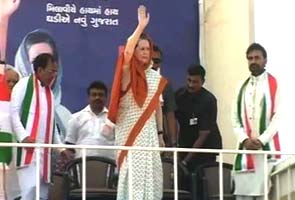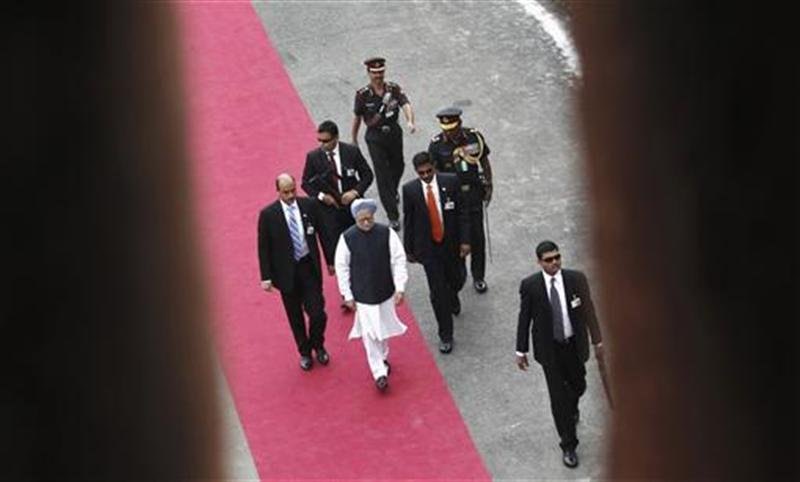Those applauding
the Wharton School of the University of Pennsylvania for dropping Narendra Modi
from its list of keynote speakers had better pause.
If anything, Wharton
can be seen as the ‘Vibrant’ wing of the university. By denying Modi the
opportunity to address what is clearly a capitalist-driven agenda, it has
managed to imbue itself with a liberalism it may not possess. It is essentially
a conformist management institution and the sole concern is to further
precisely what Narendra Modi is claiming to do.
The Wharton
Economic Forum is run by students, so clearly there are many who did not
consider inviting Modi wrong. Even the protests are conformist, and playing
into a politically-correct pattern from the humanities stream, working the
stereotype. The US administration had already denied the Gujarat chief minister
a visa in 2005, and that stands.
Recall the last time this happened, senior
BJP leaders like L.K. Advani, Manohar Joshi, Arun Jaitley addressed a rally
when Gujarat organised a ‘Bharat Swabhimaan Divas’ (self-esteem day) to regain
the lost prestige of a state chief minister who could not visit America to
address some hoteliers in Florida.
Modi had responded with:
“No court of
India, or the world, has passed any judgment against either the Gujarat
government, or its chief minister. The decision is heavily lopsided, against
the tenets of democracy and human rights and a violation of natural justice.
The American government, which prides itself on being a democracy, has indulged
in the misdeed of insulting the Indian Constitution and the five crore people
of Gujarat.”
Modi is not India. And he has gone against
the tenets of the Constitution and degraded the self-esteem of his people.
Mr. Advani had said,
“The US regards India
as a ‘pushover state’. However, this time they have chosen the wrong person.
The fight for swabhimaan initiated by Narendra Modi will become the fight of
the entire nation. It must be noted that even those who are ideologically
against us have stood by Mr. Modi.”
This was an insult to the country, for
India has not fallen prey to US moves in its internal policies or even on how
to deal with foreign powers. The entry of multinationals too is debated and
argued.
If his self-esteem
was so important, why did Modi agree to address the forum via satellite on
March 23? This time the BJP spokesperson Prakash Javadekar said, “It doesn’t
matter as Americans don’t vote in India.”
But, a huge PIO
population does exercise this right. Then, there is the funding and a promise
of investment. Besides, America is itself an imperialistic power. How much does
its antipathy towards Modi have to do with the fact that he "did nothing
to prevent a series of orchestrated riots that targeted Muslims in Gujarat” and
how much because it wants to ensure that the economic promises made by Modi
could considerably reduce its leverage in the market and lead to the prodigals
returning home?
The main sponsor,
Gautam Adani, Chairman of the Adani Group, has backed out as a protest. Other
speakers too are dropping out. The Shiv
Sena that has problems with Indians from other states coming into Maharashtra,
has said, ”Wharton’s move is an insult to India.”
There is some
noise about how Modi will become a martyr because of it. The rightwing parties
have little opportunity to get sympathy votes, so clutching at such straws often
helps ride a storm.
Why has the
rejection of Modi become such a huge issue?
The educated
middle class aspires to get into Ivy League colleges. One has to only see the
desperation over getting an entry into this rarefied world. The alumni
associations help these wishes come true with annual sponsorships. The
universities are happy to gain a bunch of bright students who will add to the
US economy in future. However, its mainstay is the significant contribution by
India's rich. All the scions of business families have performed the ritual of that
mandatory MBA, and the parental wealth has helped a good deal to keep these
universities in a happy frame of mind.
That is the reason
Wharton had no ethical or technical issues when Anil Ambani got a lecture
series dedicated to his father Dhirubhai, a man who used the simple
old-fashioned method of keeping people in fine fettle to get where he wanted
without any management technique. Wharton is, therefore, not terribly picky. It
is important to note that Anil Ambani has not commented on Modi's invitation
being cancelled. Just a month ago he had hailed him as the "king of
kings".
The Wharton Forum
has no lofty principles. Described as one of the big-ticket “India-focused
business conferences that provides a platform for leaders to discuss the
opportunities present in India and the challenges that need to be
addressed", this meet is essentially about how to make the most of the
Indian economy that has suffered fewer blows than the US or Europe.
So, whether it is
Modi or anyone else, this would be like a preview trade delegation. It has been
doing so for 16 years and has never got much attention.
The protest petition
states:
“We find it astonishing that any academic and student body at the
University of Pennsylvania can endorse ideas about economic development that
are based on the systematic oppression of minority populations, whether in
India or elsewhere. Our role as scholars and students—and indeed as would-be
entrepreneurs and business managers—must be to develop conscientious and
efficacious modes of economic organization, not to piggy-back onto the inhuman
policies of politicians who not only lack a commitment to human rights and to
ideals of social justice, but whose political success is based on the
suppression of substantial sections of their own citizens. Modi still does not
have a US visa to enter the US, but Wharton plans to present him on Skype to
the audience. Recently there have been efforts to whitewash Modi’s grim record
and to grant him respectability. Wharton’s invitation lends itself to doing just
that.”
All good. But
business models anywhere in the world ride on political initiatives. The very
idea of a liberalised economy lends itself to some amount of wiggling. The Occupy
Wall Street Movement was not organised by big business and bankers. A group of
Wharton students, essentially expats, are indulging in diaspora nostalgia. How
many minorities are accommodated in US universities? Pointing out a
universally-recognised wrong in India does not absolve the flaws within their
own system.
To make up for the
snub, news has come in that the expats under the aegis of ‘Overseas Friends of
the BJP’ have decided to redeem him. He will address them at Edison, New
Jersey, Chicago, Illinois, of USA through video conference.
One hears that Aap
Aadmi Party chief Arvind Kejriwal has been invited. This is irony for he will
be the only aam aadmi they will get to see, as the university has no place for
commoners. How many cabbies and corner store owners have been to management
schools in the US or even in India?
Recently British Prime Minister David
Cameron on his visit to India went to express his regret over the Jallianwalla
Bagh massacre. He was not revisiting history; he was ensuring that the Southall
population kept the UK economy buzzing via Amritsar. He assured that the
brightest students and big bucks got easy access to the old colonisers. And he is not against the Gujarat chief
minister. Most political leaders use a convenient modus operandi of semantics
and split ‘acts of commission and omission’ with proactive development.
This is what the Wharton Economic Forum had
done. And this is also what the protests
are doing. They are merely denying him space to speak. Will any of them sign
petitions that say they would not invest in Gujarat and do business with anyone
associated with Modi and the state?
If they get a good ‘package’, they’d pick
it up in the future when the T-shirts and the slogans are frayed and the
management cap seeks out talking heads.
(c) Farzana Versey





